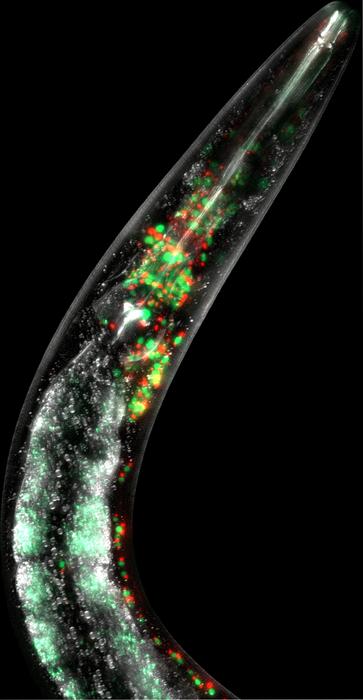University of Queensland researchers have discovered a mechanism in DNA that regulates how disease-causing mutations are inherited.

Credit: A/Prof Steven Zuryn
University of Queensland researchers have discovered a mechanism in DNA that regulates how disease-causing mutations are inherited.
Dr Anne Hahn and Associate Professor Steven Zuryn from UQ’s Queensland Brain Institute said the findings could provide a promising therapeutic avenue to stop the onset of heritable and age-related diseases.
“Mitochondrial DNA is essential for cell function,” Dr Hahn said.
“But as we age it mutates, contributing to diseases like dementia, cancer and diabetes.
“Our team identified 2 enzymes that regulate a chemical modification – adenine methylation or 6mA – in mitochondrial DNA across various species, including humans.”
“Removing this modification leads to uncontrolled accumulation and inheritance of mutations in the DNA,” Dr Hahn said.
“Our study shows the 6mA modification controls these mutations, suggesting that enhancing levels of 6mA could slow disease progression.”
The concept of epigenetics is an evolving field of research that reveals how environmental factors such as childhood experiences, can influence gene expression.
This challenges the old belief that DNA mutations inevitably lead to disease.
Dr Hahn said the study bridges the gap between genetics and epigenetics.
“It shows how this epigenetic mark guards against disease-causing mutations and ensures the continuity of healthy cells,” she said.
Dr Zuryn said epigenetic modification was not only essential for individual health but also for safeguarding the genetic integrity of future generations.
“Our discovery was largely performed in the model organism C. elegans, and cells grown in a laboratory,” he said.
“The team is now exploring whether similar mechanisms exist in humans and how they might influence disease outcomes.
“This research has vast implications and offers a novel perspective on genetic and epigenetic factors in health and disease.”
The research paper has been published in Cell Metabolism.
Media contact
QBI Communications
communications@qbi.uq.edu.au
Merrett Pye +61 422 096 049
Journal
Cell Metabolism
Method of Research
Experimental study
Subject of Research
Animals
Article Title
Misregulation of mitochondrial 6mA promotes the propagation of mutant mtDNA and causes aging in C. elegans
Article Publication Date
22-Aug-2024



